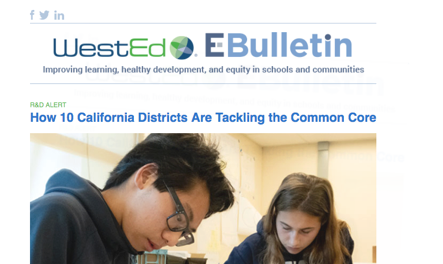Recorded on May 13, 2021
This recorded session is the first in a series of online conversations, Providing Culturally Responsive and Individualized Infant and Toddler Care, that highlights both scholarly and practitioner perspectives on the importance of providing culturally responsive and individualized infant and toddler care. Led by Peter Mangione, Senior Director of Early Childhood Strategic Initiatives at WestEd, guest speakers and PITC staff share their perspectives from the lens of both research and program practice.
The conversations focus on a range of topics including:
- Creating inclusive infant and toddler care settings
- Promoting early language development and communication for dual language learners
- Promoting responsive relationships and learning in home- and center-based settings
- Supporting family child-care providers
This archived session features Eva Marie Shivers, Executive Director and Founder of the Indigo Cultural Center in Phoenix, Arizona. Shivers is a nationally recognized researcher on issues related to early childhood education, culture, community, and provider-child relationships. Prior to relocating to Arizona and founding the Indigo Cultural Center, Shivers was a faculty member in the School of Education at the University of Pittsburgh. Shivers has presented her child-care research throughout the country and has numerous peer-reviewed publications. She also provides research consultation to federal, state, and local policymakers, especially around the issues of how to cultivate racially equitable early childhood systems. Shivers, a ZERO TO THREE Leadership Fellow (Class 2005), has served as faculty in the Harris Infant and Early Childhood Mental Health Training Institute at Southwest Human Development since 2008.
View additional session recordings from this series.
Listen to the Audio Recording
About PITC
At the Program for Infant/Toddler Care (PITC), we consider a relationship-based approach to caring for infants and toddlers essential. PITC believes responsive, respectful care in a relationship is key for supporting early learning, rather than developing lessons for infants to master. Adults who implement the PITC approach find ways to allow for, expand, adapt, and encourage infants’ efforts to pursue their inborn learning agenda.
To support implementation of PITC, we provide professional development and resources to the early childhood education community. PITC promotes relationship-based care through six essential program policies: Primary Care, Small Groups, Continuity of Care, Individualized Care, Culturally Responsive Care, and Inclusive Care. Learn more at pitc.org.
Webinar Presenter(s):
 Eva Marie Shivers Executive Director and Founder of the Indigo Cultural Center
Eva Marie Shivers Executive Director and Founder of the Indigo Cultural Center 



